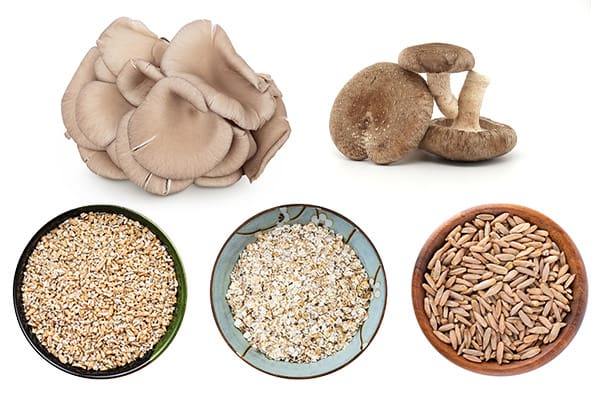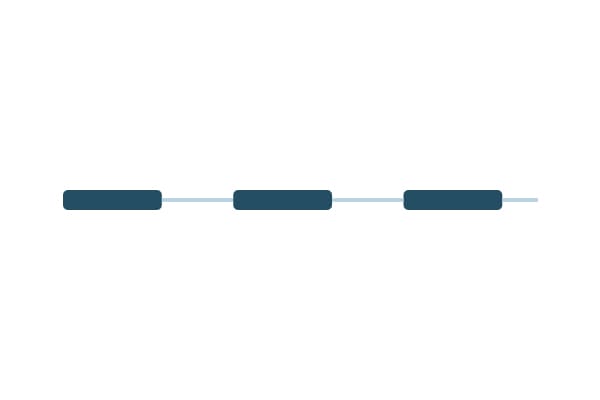01. Beta-Glucan Overview
What Are Beta-Glucans?
Beta-glucans, sometimes known as β-glucans, are nutrients known to help control blood pressure and cholesterol. They may also help stimulate the immune system to fight diseases, including cancer.
Beta-glucans are a type of polysaccharide, or sugar compound, found in living organisms. These include some mushrooms, bacteria, grains and yeasts. Beta-glucans may have benefits for patients battling cancer, like mesothelioma. These potential benefits include reducing inflammation, supporting and boosting the immune system, improving blood cell counts and improving overall quality of life.
Beta-glucans are found in many common foods and are generally considered safe. But they do not have approval from the U.S. Food and Drug Administration (FDA) to treat or cure any illness. They are a form of alternative and complementary treatment. Patients interested in adding beta-glucan supplements to their mesothelioma treatment should speak with their oncologists.
There are at least three types of beta-glucans: cereal grain beta-glucans, mushroom beta-glucans and yeast beta-glucans. Each type has a different structure and may offer different benefits.
Other Types of Glucans
Alpha-glucans are another type of molecule found in living organisms, including foods like potatoes, corn and mushrooms. They have a slightly different structure than beta-glucans, which makes many of them starches instead of fibers.
There is less research into alpha-glucans, but they may also have health benefits such as:
- Activating the immune system
- Fighting diabetic processes in the body
- Lowering cholesterol
At least one type of mushroom, maitake mushrooms, contains both alpha- and beta-glucans.
How Do Beta-Glucans Work?
Beta-glucan supplements exist in oral and intravenous (IV) forms. But IV beta-glucans are considered experimental drugs at this time. So they are only available through clinical trials, not as dietary supplements.
Scientists do not yet know all the details of how beta-glucans exert positive health effects. But some research suggests immune cells play a part. When they meet, immune cells gobble up beta-glucans and spit them out in smaller pieces. These pieces then prompt other immune cells to attack and potentially destroy tumor cells.
Beta-Glucan Supplementation
Beta-glucan supplementation practices may vary depending on the type of beta-glucan, the way it is administered, existing treatment and the particular needs of each person. One study reported a treatment regimen with a 28-day cycle. Patients took an oral beta-glucan supplement daily for 14 days. Then they took 14 days off.
Study patients completed up to 10 cycles and reported no major side effects. Additional studies will need to confirm the safety of taking beta-glucan long-term. According to experts, taking beta-glucan may be safe for up to 3 months.
02. Beta-Glucans and Cancer
Can Beta-Glucans Help Cancer Patients?
Studies of beta-glucans have shown they may provide some benefits to cancer patients, and research is ongoing. No beta-glucan has FDA approval to treat or cure any illness, including mesothelioma, lung and other cancers.
Beta-glucans are a complementary supplement and do not have approval to replace any cancer medications or treatments.
A 2014 study looked at adding beta-glucan to traditional lung cancer treatment. Patients with stage 4 non-small cell lung cancer (NSCLC) had chemotherapy with carboplatin and paclitaxel. They also received the targeted therapy drug Avastin® (bevacizumab).
Adding beta-glucans to the existing treatment regimen stalled tumor growth about 84% longer than the main treatment plan alone. Patients who received beta-glucan supplements also lived about 40% longer than those who did not.
A 2017 study investigated the effects of a yeast beta-glucan on patients with untreated late-stage NSCLC. They received carboplatin and paclitaxel chemo with Erbitux® (cetuximab). Some patients also received an IV yeast beta-glucan.
Patients who received beta-glucans were nearly 60% more likely to have tumors shrink or disappear than those who did not.
Beta-Glucan Benefits
The existence and nature of beta-glucan health benefits vary depending on a few factors. These include the type of beta-glucan, the type and severity of cancer and patient factors. Potential beta-glucan health benefits include:
- Accelerated white blood cell recovery: Some studies looked at white blood cell counts in patients receiving chemo or radiation. Patients who took beta-glucans saw white blood cell counts recover faster than those who did not. But other studies saw no effect from beta-glucan on white blood cell counts. So further research is needed.
- Minimal side effects: Multiple researchers note that beta-glucans are well-tolerated by most people. They have minimal risks of negative side effects and are generally considered safe.
- Overall improved quality of life: Some patients who took beta-glucan supplements reported a sense of well-being and less fatigue.
- Symptom and side effect management: In a study of breast cancer patients, beta-glucans reduced symptom and side effect severity. Affected symptoms included nausea, vomiting, fatigue, insomnia and appetite loss.
- Tumor killing: Beta-glucans may help white blood cells destroy tumor cells.
- Tumor suppression: A study of a beta-glucan from shiitake mushrooms found it may restrict tumor growth.
Some studies suggest potential benefits of supplemental beta-glucan for cancer patients, and others do not. With this uncertainty, interested patients should discuss beta-glucan with their oncologists before taking it.
Resources for Mesothelioma Patients
03. Beta-Glucan Eligibility
Eligibility for Beta-Glucans
Beta-glucans are supplements and do not have concrete eligibility criteria. It is unclear whether beta-glucans may complement or interfere with cancer treatments.
It is important for patients to speak to their own doctors before starting any supplements or making any major diet changes. Secondhand advice or internet research is not enough to determine whether any supplemental treatment will benefit or harm an individual patient.
A patient’s oncologist may also be able to recommend upcoming clinical trials or studies they may be eligible for.
Who Should Not Take Beta-Glucans?
Beta-glucan supplements may interfere with some blood pressure medications and immunosuppressant drugs. Patients on these types of drugs should ask their primary doctor before taking beta-glucans. Pregnant and breastfeeding people should also avoid beta-glucan supplements, as there is little research about how they may affect a child.
04. Side Effects of Beta-Glucan
Beta-Glucan Side Effects
Multiple researchers and doctors have noted that beta-glucans are generally safe and well-tolerated for most people. Observed side effects include digestive issues and fatigue.
Patients should check with their own doctors before adding beta-glucans or any other supplements to their treatment plan. Doctors can help patients understand which – if any – offer benefits substantial enough to justify their potential side effects.
05. Beta-Glucan Studies
Clinical Trials and Studies on Beta-Glucan for Mesothelioma
Research and clinical trials studying the effects of beta-glucans in both animals and people are ongoing. For instance, one study looked at yeast beta-glucans in mice with cancer. It found beta-glucans enhanced the cancer-fighting properties of immune checkpoint inhibitor drugs.
An upcoming trial will study the effects of adding beta-glucan to a cancer vaccine treatment plan. Study patients will receive beta-glucan and a cancer vaccine. Some will also receive a protein called GM-CSF that boosts the immune system.
The study aims to determine if GM-CSF will boost the efficacy of the beta-glucan and vaccine treatment. Each component of this experimental treatment may help the immune system fight cancer in a different way.
06. Common Questions
Common Questions About Beta-Glucans
-
Is it safe to take beta-glucan every day?
- Currently, there is not enough conclusive research to determine the safety of long-term beta-glucan use. Common treatment plans use a cycle of several weeks on beta-glucans and several weeks off. Patients should speak to their cancer care team before integrating beta-glucans into their treatment plan.
-
What is the best source of beta-glucan?
- Different types of beta-glucans come from different sources. Yeast beta-glucans have shown the most potential benefits for cancer patients in studies. Cereal grain beta-glucans have blood pressure and cholesterol managing properties. Beta-glucans can also come from mushrooms. Research into all types of beta-glucans is ongoing.
-
Can patients take beta-glucan while receiving chemotherapy or radiation?
- Studies have looked at taking beta-glucans during chemotherapy and radiation treatments. Results tied beta-glucans to decreases in fatigue, nausea, vomiting, pain, breathlessness, insomnia and appetite loss. Patients should discuss beta-glucans with their oncology teams before taking them. This can help avoid harmful drug interactions.
-
Can beta-glucan help boost cancer patients’ immune systems?
- Studies indicate beta-glucan supplements may have a positive effect on cancer patients’ immune systems. However, research is still inconclusive and ongoing. Beta-glucans are not FDA approved to treat or cure any disease.


 Structure: Linear
Structure: Linear









